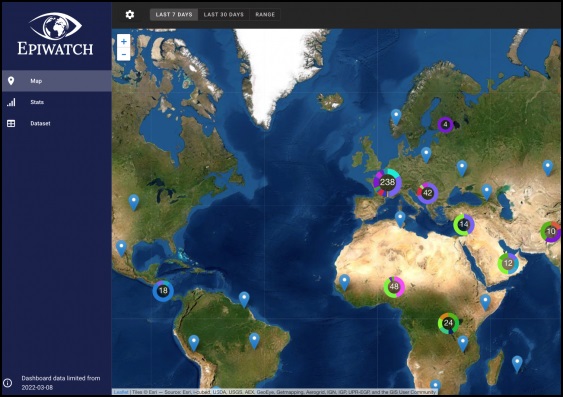A cryptocurrency donation worth around $5.3 million in the form of Ethereum dollars has been given to UNSW SYDNEY by the currency’s co-founder Vitalik Buterin.
The funds will help support an open-source intelligence tool developed by Professor Raina MacIntyre of the university’s Kirby Institute to provide pandemic early warning signals.
Vitalik Buterin, who co-founded the currency, is handing over USD$4 million in crypto funds specifically for further development of Epiwatch, an open-source intelligence tool developed by UNSW.
Epiwatch development began in 2016 and is underpinned by research and testing, which harness open-source data and uses artificial intelligence to prevent future pandemics.
The tool works by scanning millions of items of publicly available online data, such as social media and news reports, for early signals of epidemics.
It processes the vast amounts of data in real time, detecting changes to what is considered 'normal' reports about health concerns.
Although Epiwatch doesn’t replace formal reporting, it’s much quicker than waiting for formal reporting through doctors and laboratories, and allows earlier warnings of epidemics to be formally investigated by health authorities.
Buterin noted how open analysis of public data is a helpful alternative to more intrusive forms of monitoring, which are also often only available to governments and other high bidders but closed to the public.
“An open-source and open access approach that allows researchers, including members of the public, to work collaboratively across the world can be more easily improved and scaled to detect new pandemics wherever they begin,” he said.
The OSINT tool has been developed so far with grants from the National Health and Medical Research Council (NHMRC) and Medical Research Future Fund (MRFF).

This funding will enable Epiwatch to be used in low- and middle-income countries, where Prof Macintyre says it is needed most.
By using AI and real-time open-source data, Epiwatch doesn’t rely on people making reports.
“It is a great equaliser and can overcome weak health systems and censorship,” she added.
It’s hoped that in making Epiwatch accessible in lower-income countries, it has the potential to avert future world crises such as pandemics, helping to protect more vulnerable people in these countries as well as everyone globally by identify and limiting the spread of pandemic diseases.
“Imagine if someone had detected COVID-19 before it spread around the world – that is our vision,” Professor MacIntyre said.
The rise of philanthropic crypto giving
Buterin has previously made significant philanthropic contributions for social impact, including to improve the COVID response in India (India Crypto Relief Fund) and to support war-torn Ukrainian relief.
UNSW Sydney’s gift is thought to be the largest known cryptocurrency donation to an Australian higher education institution.
Yet it’s not the only crypto-related philanthropic initiative.
Philosopher and animal rights activist Peter Singer has teamed up with Decrypt Studios to create four NFTs to auction to support the work of his non-profit organisation, The Life You Can Save.
Charities themselves, like Save The Children, are also moving to accept crypto donations on cryptocurrency donation platforms.
Crypto donation platform The Giving Block believes it may be a niche but valuable form of giving and has even created a premium crypto donation offering for generously-minded, high-value crypto holders.










